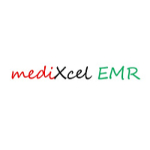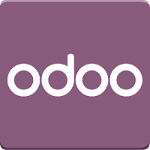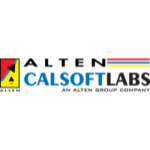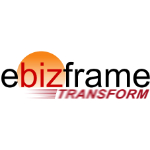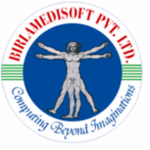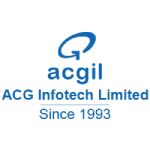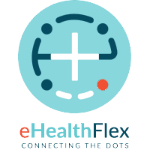List of Best Hospital ERP Software
Showing 10 of 24 productsHalemind, the innovative software designed to enhance your mind and optimize your performance. With its advanced features and user-friendly interface, Halemind is a tool for boosting your cognitive abilities and achieving your goals. Say hello to a s...Read Halemind Reviews
MediXcel EMR is a electronic medical records software designed to streamline and optimize the healthcare process. With its user-friendly interface features, it helps healthcare professionals to efficiently manage patient records, improve communicatio...Read MediXcel EMR Reviews
Odoo is a robust and open source enterprise resource planning (ERP) and customer relationship management (CRM) software that offers a wide range of business applications. One of its main features is the ability to track leads efficiently. Its user-f...Read Odoo Reviews
ALTEN Calsoft Labs, a leading global technology and digital transformation company. Founded in 1992, we have established ourselves as pioneers in providing innovative solutions in areas such as cloud computing, data analytics, and IoT. Our team of hi...Read ALTEN Calsoft Labs Reviews
VIKAS - Hospital ERP, a revolutionary software designed to streamline and enhance the operations of hospitals. With its user-friendly interface features, VIKAS ensures efficient management of patient records, billing, appointments, inventory, and mor...Read VIKAS - Hospital ERP Reviews
ebizframe ERP is a versatile is a software that streamlines business processes, boosts productivity, and drives growth for organizations of all sizes. From finance and sales to inventory and HR, ebizframe streamlines operations and provides real-time...Read ebizframe ERP Reviews
SolutionDots is a leading software company that offers innovative solutions to various businesses across different industries. With a team of highly skilled professionals, SolutionDots provides customized software solutions that cater to the specific...Read SolutionDots Reviews
Quanta WebHIMS, the powerful healthcare information management system designed to streamline and optimize every aspect of a medical facilitys operations. With user-friendly interface features, Quanta WebHIMS is a solution for healthcare providers to...Read Quanta WebHIMS Reviews
ACGIL Hospital Management is a state-of-the-art software designed to streamline and automate the operations of hospitals, medical centers, and clinics. This powerful solution offers a range of features and modules to effectively manage patient record...Read ACGIL Hospital Management Reviews
eHealthFlex is a software designed to revolutionize the field of healthcare. With its advanced technology and user-friendly interface, eHealthFlex brings a new level of efficiency and convenience to medical professionals and patients alike. Say goodb...Read eHealthFlex Reviews
- What Is Hospital ERP Software?
- Top Reasons Why Businesses Need Hospital ERP Software?
- What Are the Top Key Features of Hospital ERP Software?
- What Are the Top Benefits of Hospital ERP Software?
- What Are the Steps to Choose the Right Hospital Erp Software?
- What Are the Types of Hospital ERP Software for Different Industries?
- What Are the Technology Trends for Best Hospital ERP Software?
- What Are the Deployment Options for Hospital ERP Software?
What Is Hospital ERP Software?
Hospital ERP software, often known as enterprise resource planning software, is a software solution designed to facilitate the effective management of hospital operations. Typically, it incorporates accounting, human resources, and various other functions inside a unified and consolidated platform. Enterprise Resource Planning (ERP) software facilitates the efficient management of patient data and billing information within hospital settings, hence enhancing the accuracy and timeliness of information.
Furthermore, it aids in guaranteeing adherence to relevant rules and industry norms. Enterprise Resource Planning (ERP) software has the potential to enhance operational efficiency, optimize patient experiences, and establish streamlined, cost-effective procedures within medical settings.
Additionally, it can aid in the management of inventories, scheduling of physicians, and organization of patient visits. Hospitals can utilize the program to oversee and coordinate a range of essential functions, including financial management, human resource administration, patient care delivery, operational processes, communication systems, and information technology.
The implementation of Enterprise Resource Planning (ERP) software in hospitals enables the development of enhanced strategies for business information and analytics. The top hospital ERP systems are the prompt identification of concerns and the implementation of appropriate corrective measures.
Furthermore, enterprise resource planning (ERP) software has the capability to offer data-centric insights into patient outcomes, hence facilitating hospitals in enhancing treatment delivery and augmenting patient satisfaction. By implementing these measures, hospitals have the potential to enhance their reputation among patients, leading to improved financial performance.
Top Reasons Why Businesses Need Hospital ERP Software?
1. Streamlines administrative and financial operations: Hospital Enterprise Resource Planning (ERP) solutions facilitate the optimization of administrative activities through the automation of operations, hence removing the need for human data entry and minimizing the occurrence of errors.
2. Improves customer service: Hospital management ERP software enhances customer service by offering a comprehensive and unified perspective of the patient's medical records, scheduled visits, and financial transactions.
3. Enhances medical care: Hospital enterprise resource planning (ERP) systems offer clinical decision assistance through the provision of instantaneous access to patient data and medical records. This enables medical practitioners to make more informed decisions regarding therapy.
4. Increases accuracy: The implementation of automated procedures and the elimination of manual data entry have been shown to enhance accuracy.
5. Ensures compliance with regulations: Hospital enterprise resource planning (ERP) systems play a crucial role in facilitating adherence to the Health Insurance Portability and Accountability Act (HIPAA) and various other governmental laws.
6. Improves financial performance: Hospital enterprise resource planning (ERP) solutions offer precise and punctual financial reporting, facilitating managers in enhancing budgetary planning and expense management.
7. Enhances operational efficiency: Hospital enterprise resource planning (ERP) solutions contribute to cost reduction and enhanced efficiency by automating operations and removing unnecessary jobs.
8. Improves patient satisfaction: Hospital enterprise resource planning (ERP) systems offer a comprehensive and consolidated perspective of the patient's medical records, scheduling of appointments, and financial transactions, hence enhancing patient contentment.
9. Reduces costs: Hospital enterprise resource planning (ERP) solutions contribute to cost reduction through the enhancement of accuracy, simplifying administrative duties, and improvement of operational efficiency.
10. Reduces redundancy: This system contributes to the reduction of redundancy by removing the need for human data entry.
11. Increases scalability: Hospital enterprise resource planning (ERP) solutions have the capability to incorporate and expand services and user accounts in response to demand.
12. Improves security: Hospital enterprise resource planning (ERP) systems are equipped with robust security mechanisms designed to safeguard sensitive patient information.
13. Facilitates reporting: Hospital enterprise resource planning (ERP) systems offer the functionality to generate reports that are automated and tailored to specific requirements.
14. Provides access to data: Hospital enterprise resource planning (ERP) solutions facilitate the secure retrieval of patient data, ensuring accessibility at any given time and location.
15. Enables data sharing: Hospital enterprise resource planning (ERP) solutions provide the secure sharing of data across many departments and facilities within a healthcare organization.
What Are the Top Key Features of Hospital ERP Software?
The top key features of hospital ERP software include:
• Charting: Electronic medical records (EMRs) facilitate the tracking of patients, analysis of data, and generation of reports.
• Electronic payments: This study examines the implementation of automated processes for facilitating payment transactions between healthcare providers and patients. Specifically, it focuses on the utilization of automated systems for making payments to providers and collecting payments from patients.
• Secure access: The security of patient data and other hospital operations is ensured by the implementation of user authentication and encryption technologies.
• Scheduling: The process of automating appointment scheduling and resource allocation.
• Billing & Coding: This study examines the efficacy of automated systems in ensuring accuracy in insurance billing and coding.
• Clinical Dashboard: The visualization of essential patient metrics, resources, and processes.
• Supply Chain Management: The implementation of automated systems for the purposes of ordering, tracking, and managing inventories.
• Reporting & Analytics: Produce comprehensive reports and analyses to monitor and evaluate clinical performance.
• E-Prescribing: The implementation of automated systems for the processes of ordering, tracking, and reordering medication.
• Laboratory Results: The utilization of automated systems for the monitoring and examination of laboratory tests, outcomes, and patterns.
• Integration: The ability to effectively exchange and integrate information with various healthcare-related systems and data sources.
What Are the Top Benefits of Hospital ERP Software?
1. Automation of Administrative Tasks: The Hospital Enterprise Resource Planning (ERP) software streamlines several administrative functions within healthcare organizations, including but not limited to data input, order processing, billing, insurance claims, payroll management, and inventory control. By automating these operations, the program strives to enhance productivity levels within the hospital setting.
2. Streamlined Communication: The integration of various modules inside a hospital through ERP systems enhances communication between departments as well as between patients and medical staff.
3. Improved Patient Care: The incorporation of patient records into an Enterprise Resource Planning (ERP) system enhances the quality of healthcare delivery through the provision of current and precise patient information.
4. Cost Savings: Enterprise Resource Planning (ERP) systems play a crucial role in cost reduction within healthcare organizations through the elimination of redundant systems and the enhancement of process efficiency.
5. Centralized Business Intelligence: The hospital enterprise resource planning (ERP) system maintains a centralized repository for storing all data. By utilizing this dataset, healthcare facilities are able to examine prevailing trends and patterns, enabling them to make well-informed decisions.
6. Improved Security: A hospital Enterprise Resource Planning (ERP) system guarantees the preservation of system integrity and data confidentiality by safeguarding against unwanted access.
7. Mobile Technology: Hospital enterprise resource planning (ERP) systems offer the functionality of mobile access, enabling medical personnel to remotely access the system beyond the confines of the hospital premises.
8. Improved Record Management: The implementation of a hospital Enterprise Resource Planning (ERP) system offers a structured and safe platform for the storage of patient records, hence facilitating efficient retrieval and search functionalities.
9. Increased Compliance: Hospital enterprise resource planning (ERP) systems play a crucial role in ensuring the organization's adherence to government requirements and industry standards.
What Are the Steps to Choose the Right Hospital Erp Software?
1. Establish Clear Goals: Prior to choosing a top hospital ERP system, it is vital to possess a comprehensive comprehension of the objectives that the software is intended to facilitate. It is imperative to carefully evaluate one's business demands and objectives, as well as the existing and future requirements, in order to assess the compatibility of the software with these factors.
2. Research Software Vendors: After developing a comprehensive comprehension of one's objectives, it becomes imperative to conduct thorough research on software providers that provide solutions capable of fulfilling such objectives. Conducting internet research is a prevalent practice for individuals seeking to get knowledge about many aspects such as available features, usability, customer reviews, technical support, pricing alternatives, and other relevant information.
Furthermore, it is advantageous to engage in direct communication with merchants in order to address any supplementary inquiries that may arise.
3. Assess Capabilities: Assess the software's functionalities to ascertain its ability to sufficiently fulfill the demands of your enterprise. This study aims to examine various aspects of a product, including its features, development history, scalability, user-friendliness, platform compatibility, customer support, and other relevant factors.
4. Explore the Costs: It is important to comprehend the many expenses related to the software, encompassing the license fee, maintenance costs, upgrade fees, and installation expenses. Choose a product that offers a significant return on investment.
5. Customize and Test: After the selection of a vendor, it is advantageous to engage in software customization and subsequent testing in order to verify its expected functionality. It is imperative to thoroughly evaluate the software to ensure that it aligns with all of your criteria prior to making any commitments.
6. Make a Decision: After thorough research and testing, you can make an informed decision on whether or not the software is the right fit for your business. Make sure to understand the terms of the agreement and be sure that the software meets all of your needs.
What Are the Types of Hospital ERP Software for Different Industries?
Hospital enterprise resource planning (ERP) software systems have been specifically developed to optimize operational procedures, enhance the quality of patient care, and augment overall efficiency inside healthcare institutions. The suitability of various types of hospital ERP software to fulfill certain requirements may vary depending on the industry.
Hospital enterprise resource planning (ERP) systems typically consist of fundamental software modules that encompass various aspects of hospital operations. These modules often include patient health records, medical information management, billing systems, scheduling tools, and inventory management functionalities.
However, it is worth noting that there exist numerous specialized variations of hospital ERP systems that have been specifically tailored to cater to distinct market segments. Medical equipment and device makers might potentially derive advantages from the utilization of equipment maintenance and service management software.
This software facilitates the efficient management of service contracts, warranties, labor scheduling, parts ordering, asset tracking, and preventative maintenance. The primary purpose of Pharmacy Enterprise Resource Planning (ERP) software is to facilitate the efficient management of medication and inventory inside pharmacies. This software aims to optimize ordering processes and ensure the generation of precise labels.
Furthermore, it aids pharmacies in the management of client data, monitoring supply performance, and facilitating the procurement of refills from vendors. In order to effectively handle many aspects of patient care, communication, clinical and laboratory management, logistic operations, financial processing, and reporting capabilities, it may be necessary for large multi-specialty health systems to implement comprehensive integrated hospital Enterprise Resource Planning (ERP) systems.
The top hospital ERP systems solutions specifically designed for outpatient services offer a range of features including patient flow management, appointment templates, bed management, and enhanced clinical decision support. These aforementioned instances represent a limited selection of the diverse array of hospital Enterprise Resource Planning (ERP) software options that exist, tailored to cater to the specific requirements of various industries.
What Are the Technology Trends for Best Hospital ERP Software?
The technology trends for best hospital ERP software are as follows:
1. Mobility: ERP systems are becoming more integrated with mobile and cloud technologies to enhance their portability, ease-of-use, and security. This allows healthcare organizations to access the most up-to-date information and resources from anywhere, at any time.
2. Artificial Intelligence: AI is being integrated into hospital ERP software to automate processes, optimize efficiency, and reduce errors. It helps healthcare organizations to better handle large amounts of data faster, spot patterns, and come up with better treatment plans.
3. Blockchain Technology: Blockchain helps to secure patient data and reduces the need for redundant updates, thus improving data accuracy. It can also be used to securely transfer medical images and records and help manage a patient's care along the continuum.
4. Automation: Automated solutions are becoming highly popular amongst healthcare organizations as they help streamline operations, monitor performance, and reduce costs. Things such as billing, scheduling, and other everyday administrative tasks can now be easily automated, saving time and resources.
5. Cloud-Based ERP Software: Cloud-based ERP solutions are becoming popular as they offer a more secure, cost-efficient, and scalable platform for healthcare organizations. With cloud ERP, healthcare providers can access up-to-date information, resources, and data from any device, anywhere, at any time.
What Are the Deployment Options for Hospital ERP Software?
The selection of deployment choices for hospital enterprise software is contingent upon the dimensions and intricacy of the healthcare facility. Cloud-based deployment is frequently considered a favorable choice for smaller-size hospitals due to its capacity to scale, cost-effectiveness, and the provision of support from a third-party supplier.
Certain hospitals with larger capacities possess the necessary resources to implement their enterprise resource planning (ERP) systems within their premises, hence enabling enhanced oversight and tailoring of the system.
Larger hospitals have the option to implement their Enterprise Resource Planning (ERP) systems in a hybrid manner, incorporating both cloud-based and on-premises components. The determination of the optimal deployment strategy will ultimately hinge upon the specific needs of the hospital and the functionalities offered by the ERP software.

